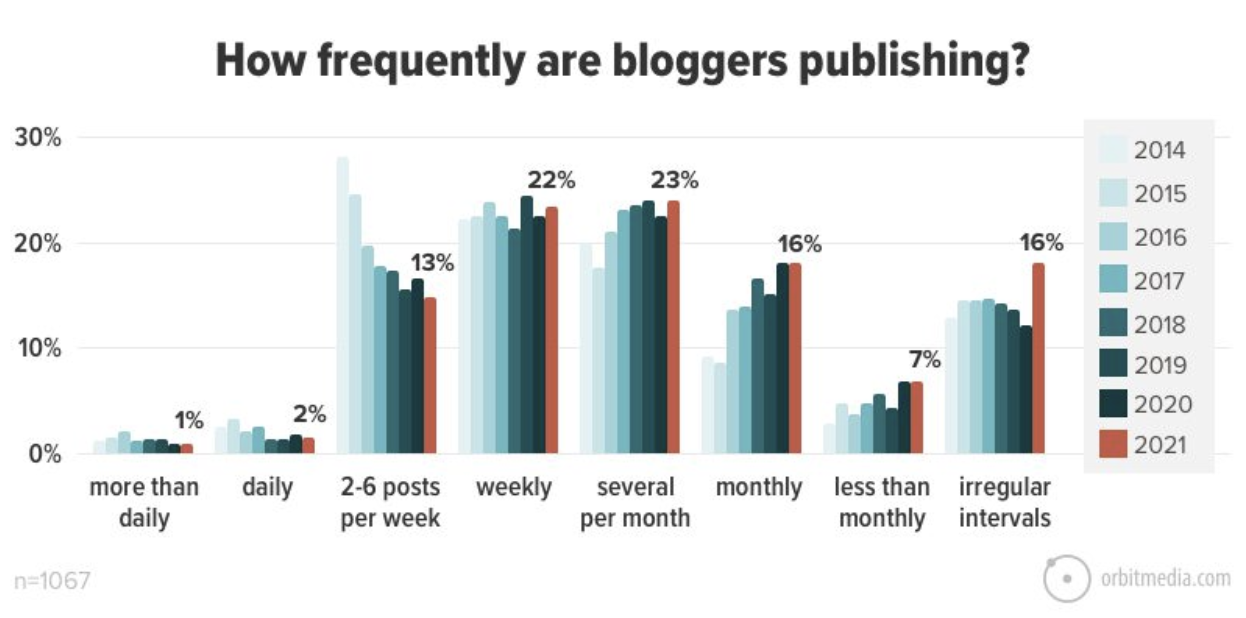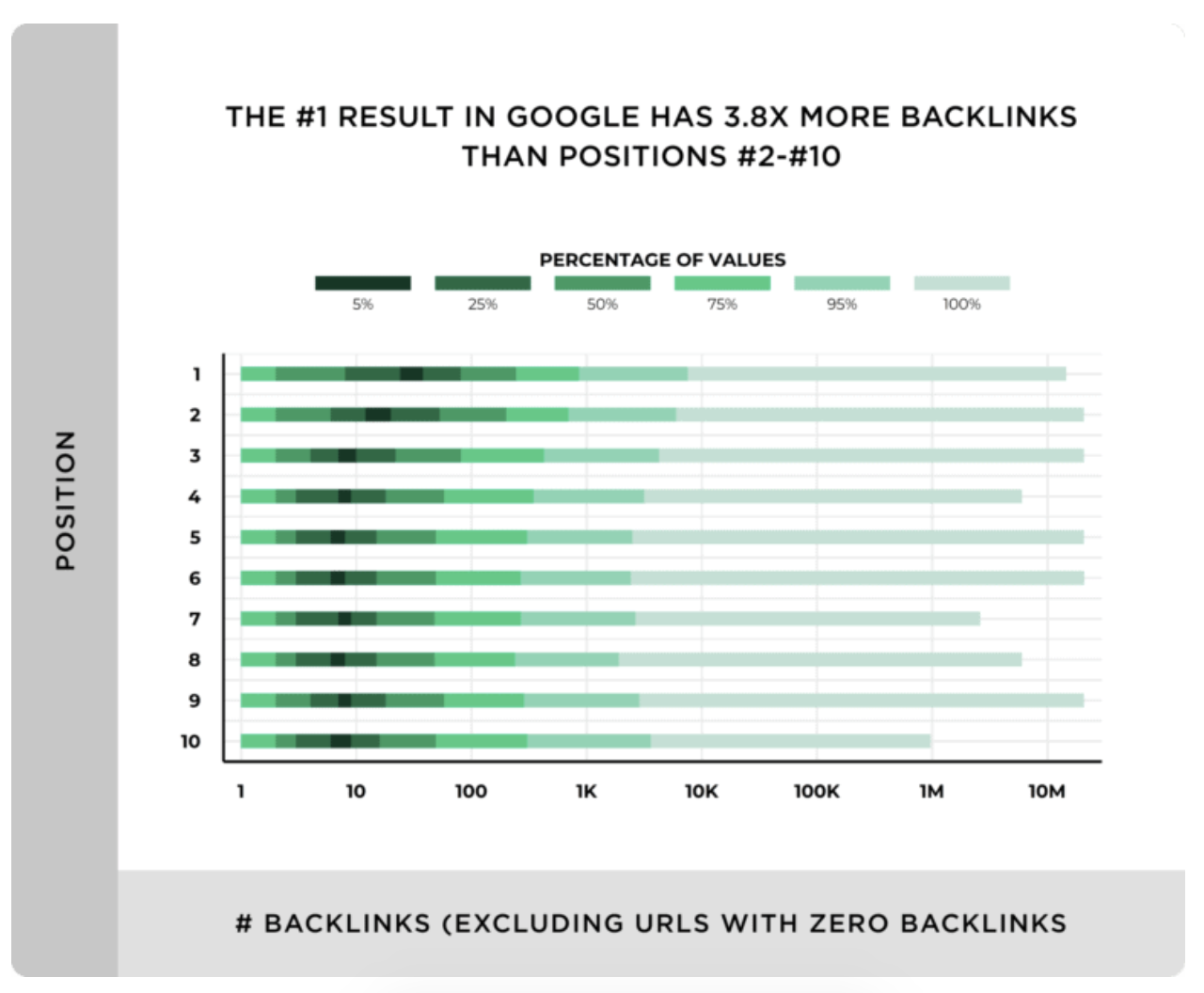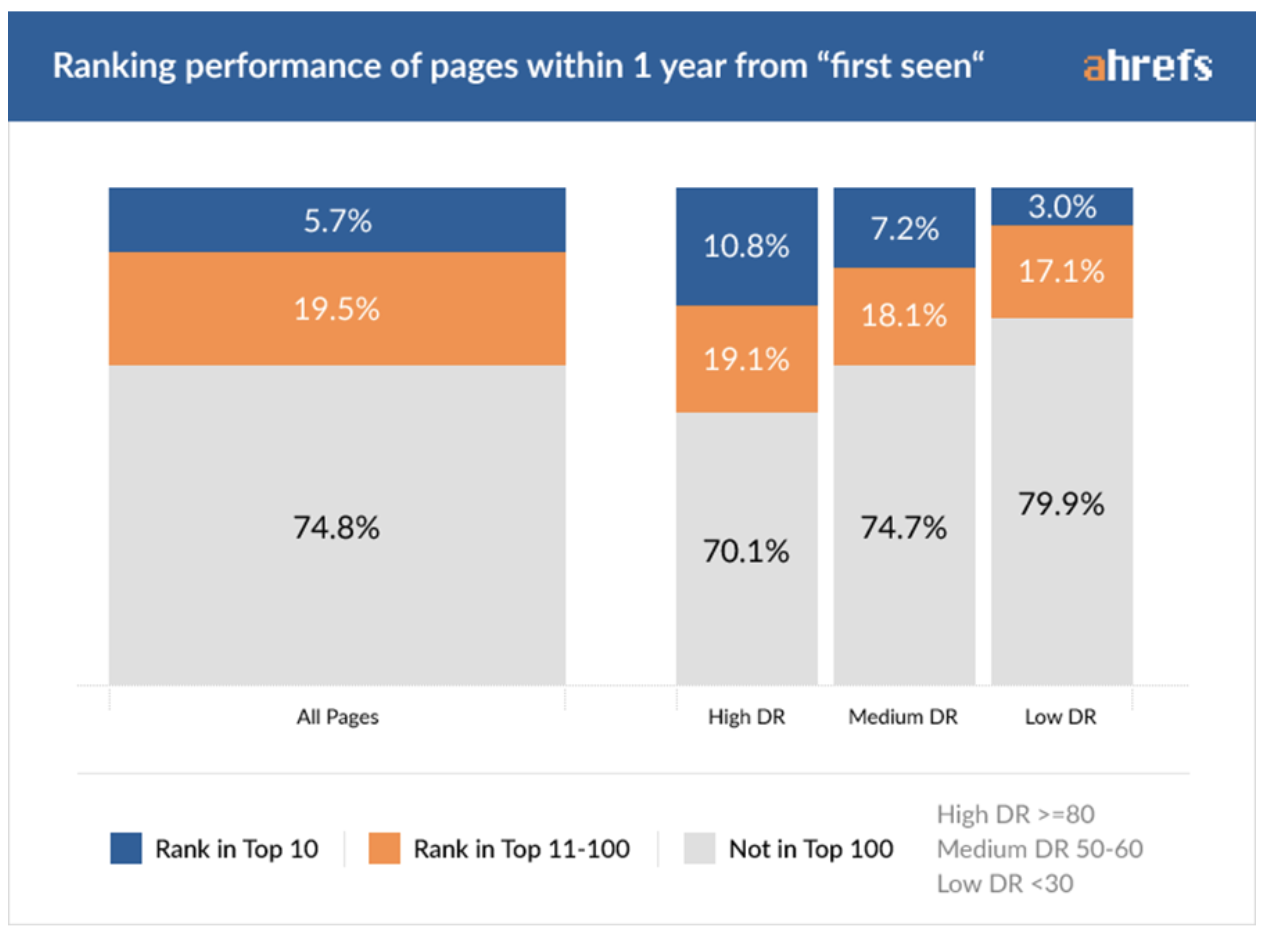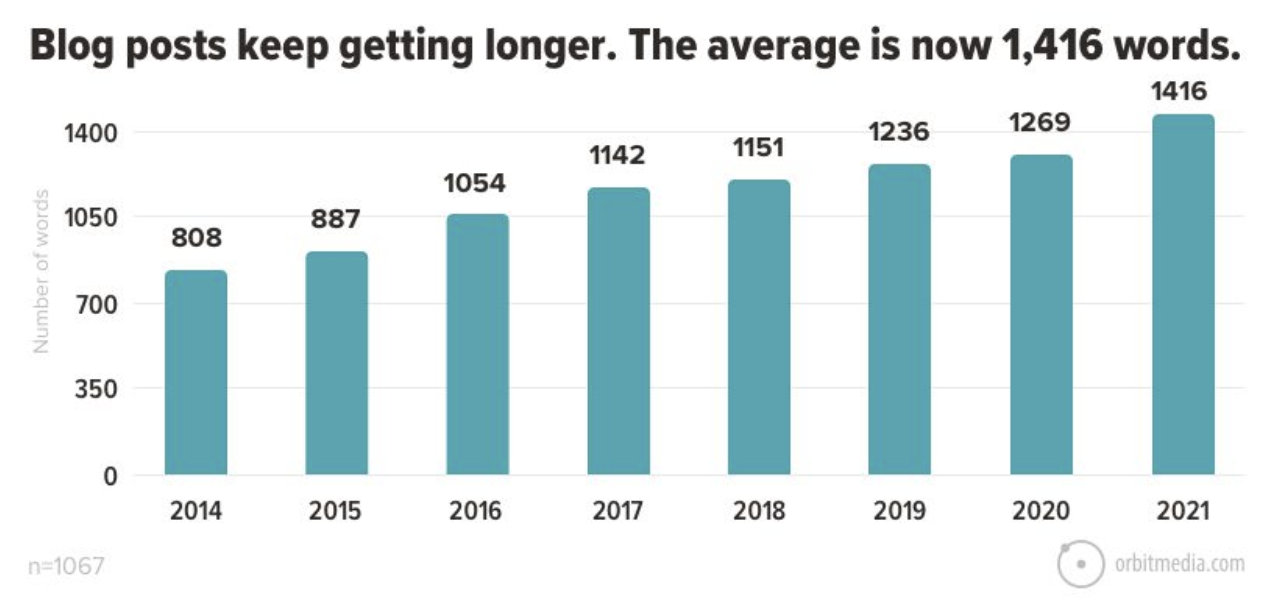Blogging is one of the oldest digital marketing tactics out there. But it’s still extremely popular, with Orbit Media revealing that about half of bloggers post weekly or several times a month.
If they’re creating all that content, they must be seeing some benefit. Perhaps it’s helping them generate leads or close deals. Most likely, it’s helping them attract more traffic from search engines.
But exactly how does blogging help SEO? Let’s find out…
1. Google Loves Fresh Content
Back in 2011, Google updated its algorithm to prioritize “fresh” content for certain queries.
It was a pretty significant update, affecting at least one result per page for about 35% of all searches.
So how does Google determine if your content is fresh? According to Moz, it’s down to multiple factors, including:
- The date a page was indexed by Google
- The number of changes made to a page’s core content
- The freshness of backlinks pointing at a page
- The frequency of page updates
- The rate of new page creation
That final point is key: Google likes new pages. Given that you’re unlikely to be adding new landing pages on a weekly basis, blogging is one of the best ways to keep your content fresh.
However, it’s important to note that freshness isn’t a factor in all Google results. Why? Because not all searches require a fresh answer.
If you’re searching for the hottest fashion trends, you want an up-to-date result. But if you’re researching the Louisiana Purchase or Googling a recipe for bao buns, an older source will do just fine.
For “timely” keywords, get on Google’s good side by keeping your blog content updated regularly.
But for more evergreen topics, it’s fine to treat them as generally “one-and-done” unless some new information comes to light, or you think you could generate some more backlinks by updating the copy.
2. Blogging Helps You Win External Backlinks
Speaking of backlinks, they’re one of the most important SEO factors out there.
In fact, Backlinko discovered that the page sitting at #1 on Google has, on average, nearly four times more backlinks than the pages in positions 2 – 10.
So backlinks are crucial if you’re going to improve your rankings and bring in more search traffic. But how does blogging help SEO agencies and marketers to attract more links?
One of the most common tactics is to write guest blogs for other websites. The idea here is simple:
- Find a website with a decent domain rating (30+ is a good starting point)
- Reach out with an article pitch
- Offer to write it up in exchange for a link back to your website
It takes a little time and effort to find the right websites and produce your guest posts, but the results are definitely worth it.
3. Blogging Is the Best Way to Target Long-Tail Keywords
It’s hard to improve your rankings, especially if you have a comparatively new website.
So hard that less than 6% of all pages hit the top 10 search results within a year of first being seen by an Ahrefs crawler.
But you can definitely improve your chances of ranking strongly by targeting less-competitive long-tail keywords.
Despite the name, long-tail terms aren’t necessarily longer than short-tail ones (although they often are). Rather, they’re more specific. To explain what we mean, consider this example from the world of marketing:
| Keyword | Keyword type | Monthly volume (per Ahrefs) | Keyword difficulty (per Ahrefs) |
| Content marketing | Short-tail | 16,000 | 88 |
| Content marketing for startups | Long-tail | 300 | 14 |
Sure, the long-tail variant has much less volume. But it’s also far less competitive, which makes it easier to rank for.
Not only that, but it’s a lot more qualified — someone searching for “content marketing” might just be looking for a definition, whereas “content marketing for startups” suggests a certain amount of buying intent.
Because long-tail terms are more specific, you likely can’t create a dedicated landing page for each and every one. It’d make your website borderline impossible to navigate.
But you can definitely target those highly valuable niche terms in your blog content!
4. More Blog Posts = More Internal Linking Opportunities
We’ve already discussed one type of link: backlinks. Now, it’s time to consider internal links.
As the name suggests, internal links are links from other pages on the same website. Unlike backlinks (links to your website from other websites), you have full control over internal links — no pitching to external sites or writing guest posts. Whenever you want to insert an internal link in your content, you can.
Why bother? Because internal links are a powerful way to point Google in the direction of your most important pages, such as:
- Your homepage
- Category pages
- Sales pages
- Other landing pages
So how does this work in practice? Well, to continue our example from the previous section, let’s say you have a landing page targeting the term “content marketing.”
Naturally, you want Google to realize that’s the main page on your site for content marketing-related information. So you can write a bunch of blog posts targeting long-tail content marketing terms like:
- Content marketing for startups
- Content marketing for small businesses
- Content marketing for law firms
- Content marketing for higher education
- Content marketing for nonprofits
Each of those blog posts gives you an opportunity to add internal links to the main content marketing landing page in a natural (i.e. non-spammy) way. Simple!
5. Improve Your Engagement Metrics With Quality Content
Blog posts keep getting longer.
According to Orbit Media, the average post length in 2021 stood at 1,416 words…
…while Backlinko’s research found that the average length of a Google top 10 result is 1,447 words.
In part, this backs up the theory that Google rewards content with better engagement metrics. It stands to reason that if you write a long and highly engaging post, people will spend more time on the page. In turn, Google will see that as a signal that readers love the page, so they’ll show it to more searchers.
That’s the theory, at least. And while Google has never said this in so many words, an analysis from Larry Kim of Wordstream concluded that pages with “excellent, unicorn-level engagement metrics” are likely to bring in the lion’s share of traffic.
So the lesson here is creating highly engaging, long-form blog content can boost your engagement metrics, which in turn can improve your rankings.
Blogging Beyond SEO
As you can see, there are lots of answers to the question: “How does blogging help SEO?”
But it’s important to remember that blogging also has a bunch of other benefits.
You can share a blog post on social media, boosting your traffic from platforms like Facebook, LinkedIn, and Twitter. You can use a blog post to demonstrate your expertise, positioning you as a highly credible thought leader in your niche. You can even package up your best blog posts as downloadable ebooks and use them to generate leads.
So it’s hardly surprising blogging is still so popular!
Want to level up your blogging game but don’t know where to start? Content Conquered can help! Find out more today.




